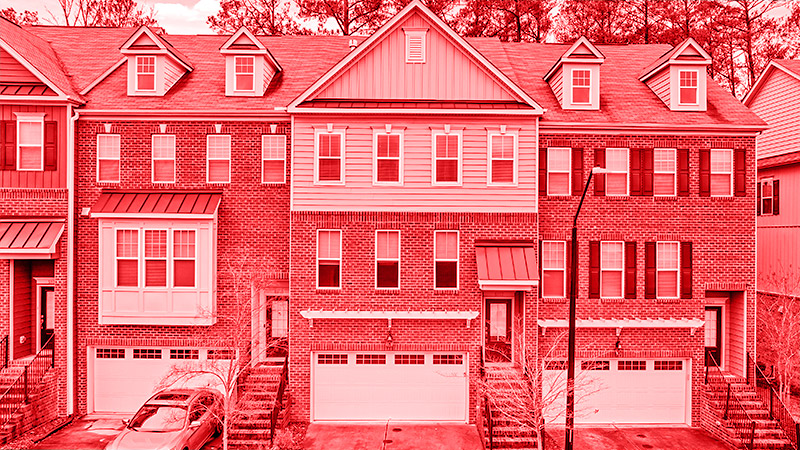After searching the mortgage market for the right product for you, drafting your application and gathering all of the necessary documentation together, you find out that your application has been rejected.
It would only be natural to be feeling a mix of emotions from frustration to deflated but the most important thing to remember is not to panic.
In this guide, we will explore the common reasons why a mortgage is declined and the next steps available to someone who has had their application refused.
What is a Mortgage Underwriter?
Employed by the bank or lender, an underwriter has the task of determining the perceived risk of the borrower.
Even though you may be at the point of passing the initial credit checks and have secured a Mortgage in Principle, final approval is still not guaranteed.
Only once the property has been valued and the underwriter has carried out an in-depth review of your finances can you be sure of a final decision.
Reasons Why Mortgage are Declined by Underwriters
Unfortunately, mortgage applications can be declined at various stages throughout the process, for a range of reasons.
Some matters may seem minor on their own, however, lenders may associate a handful of risks and decline an application as a pro-caution whereas other, more serious matters would result in rejection in their own right.
Need more help? Check our quick help guides:
- Reasons why a mortgage could be declined on affordability.
- How reliable is a mortgage in principle?
- How do joint mortgages work?
- Can you get a mortgage on a fixed-term contract?
Mortgage Declined by Underwriter Reasons
Why do underwriters decline mortgage applications?
High Levels of debt
A lender will review each mortgage applicant’s credit file during the underwriting process including the level of debt that the applicant has.
Debt is reviewed by potential mortgage lenders as applicants with high levels of debt may fail affordability checks. Each lender will have their own criteria of what they deem as acceptable levels of debt.
However, they will also investigate other factors such as the number of open credit accounts, as well as the percentage of current debt as a ratio of the total available credit limits and the level of income committed to monthly debt repayments.
Poor Credit Score and Credit History
During the mortgage application process, the potential lender will request and review credit reports of the applicant(s) including
analysing their current score as well as detailed credit history.
If an applicant has a County Court Judgement (CCJ) recorded, has previously filed as bankrupt or has a previous home repossession, a mortgage application could be declined with some lenders.
Affordability concerns due to high monthly expenditure
As part of a mortgage application, applicants will usually be requested to provide copies of their bank statements so that the underwriters can review monthly income and expenditure transactions.
During the review process, should significant outgoings be identified, leaving low monthly disposable income, a mortgage could be rejected due to the lender’s affordability criteria.
Mortgage deposit insufficient
Another reason that a mortgage application could be declined is due to the deposit level.
Although the level of deposit is usually known from the outset by both the mortgage lender and applicant, changes can occur due to either of the following scenarios:
- The mortgage lender could reduce their mortgage so that a larger deposit is required by the applicant, perhaps due to affordability factors or other risk factors discovered during the underwriting stage.
- Upon the valuation of the desired property, the price was increased or the vendor requested a higher price during the buying process resulting in a larger deposit being required to secure the property.
Salary or Employment Concerns
Should a change of employment conditions occur during the application process such as an applicant is made redundant, a mortgage offer may be declined.
In addition, if the evidence provided to prove the applicant’s income level is found not to match the details within the application, a mortgage offer could be withdrawn.
Concerns with the Property
Another reason that a mortgage may be withdrawn or declined is in relation to the condition of the associated property, which is only discovered from the property valuation report.
Properties that are deemed unhabitable, those with structural concerns, or issues such as damp or invasive weeds are not usually accepted for a mortgage.
Technical Errors or Insufficient Information
On the odd occasion, mortgages can be rejected either in error or due to insufficient documentation. Often a lender would liaise with the applicant(s) if there were any queries, however, if the criteria cannot be met with evidence where required, rejection can occur.
Related guides:
- When was my house built?
- Buying out a sibling from an inherited house
- How long does it take to release mortgage funds?
- Does a valuation mean that a mortgage is approved?
- Mortgage lenders that accept benefits
- Can I extend my interest-only mortgage term?
How long does mortgage underwriting take?
Typically, the underwriting process timeline depends on the experience of the underwriter and how many applications they have pending.
Occasionally a sudden increase in applications can result in delays but your bank or lender should inform you of any changes or potential delays.
Next Steps following a Rejected Mortgage Application
Appeal the decision
Appeals can be made following a rejection however often underwriters would have reviewed most elements in detail as part of the application process, therefore unless an error can be identified it may not change the outcome of the lender’s decision.
Should you find yourself in the position of a declined mortgage application, it is highly recommended that expert advice is sought before making any next moves or further applications.
Mortgage brokers have an insight into the mortgage market, the lending criteria of the specific lenders and well overall trends to be in the best position to advise.
Also, such professionals can review an application in order to explore the causes and aim to provide a solution either with the potential lender that the original application was underwritten with or by searching the wider mortgage market for another provider willing to accept the personal circumstances that have been discovered.
In the situation where a mortgage is rejected towards the end of the process, speed will be of utmost importance to protect the applicant’s interests as well as often a chain of other house purchases may be impacted by a last-minute mortgage withdrawal.
In such circumstances an experienced mortgage broker would be required to help resolve the matter if possible to protect the purchase, however, should a solution not be found, legal claims may sometimes be brought due to a breach of contract.
Related guides:
- Mortgage 5 times salary.
- Can you get a mortgage on land?
- Refurbishment mortgages.
- Part and part mortgages.
- HMO mortgages.
Mortgage Declined by Underwriter Summary
Ideally, mortgage brokers would aim to protect against a declined mortgage application by ensuring that an applicant met the lending criteria before an application is made, however, if there are circumstances beyond the control of the applicant and a mortgage is declined, brokers are there to support and advise on the next steps.
Should you find that your mortgage has been declined, try not to panic and get in touch with our friendly team as soon as possible so that our expert brokers can assist with identifying the concern and either liaise with the current potential lender or search the whole mortgage market for a specific lender suited to the personal circumstances.
Please feel free to get in touch with our friendly team of advisors to book an initial consultation to discuss the options available to you.
Call us today on 03330 90 60 30 or feel free to contact us. One of our advisors will be happy to talk through all of your options with you.
Further reading:
















